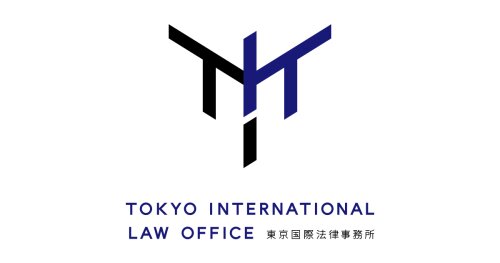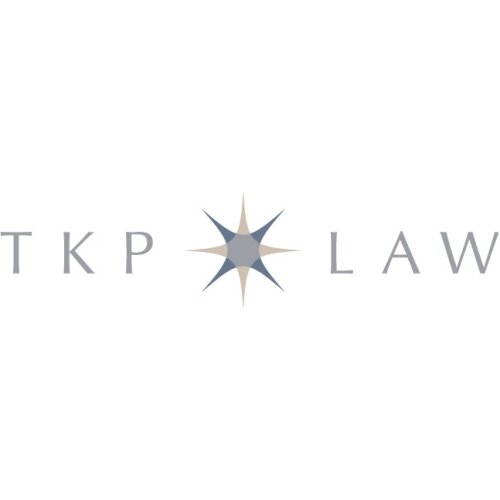Best Climate Change Law Lawyers in Tokyo
Share your needs with us, get contacted by law firms.
Free. Takes 2 min.
List of the best lawyers in Tokyo, Japan
About Climate Change Law in Tokyo, Japan
Climate Change Law in Tokyo, Japan, is a developing field that governs the regulations, policies, and initiatives aimed at addressing the causes and impacts of climate change within the city. These legal measures cover everything from greenhouse gas emission reductions and renewable energy promotion, to adaptation strategies for extreme weather events. The Tokyo Metropolitan Government (TMG) has been a national leader, implementing measures like the Tokyo Cap-and-Trade Program to limit emissions from large facilities and set ambitious decarbonization goals. Legal compliance is essential not only for large-scale corporations but also for medium and small enterprises, real estate developers, and individuals whose activities have environmental impacts within Tokyo.
Why You May Need a Lawyer
Navigating Climate Change Law in Tokyo can be complex. You may need legal assistance for several reasons, such as:
- Understanding your obligations under local emission regulations if you run a business
- Seeking permits or approvals for construction projects that require environmental assessments
- Engaging in renewable energy projects and navigating incentives or subsidies
- Defending against administrative actions or penalties for non-compliance with emission reduction mandates
- Participating in emissions trading under the Tokyo Cap-and-Trade Program
- Seeking compensation or remedy for environmental damage caused by third parties
- Representing civic groups or individuals in advocacy or litigation related to climate impacts
A lawyer with expertise in Climate Change Law can help ensure compliance, manage risks, and represent your interests in negotiations, administrative procedures, or court actions.
Local Laws Overview
Tokyo has enacted several local laws and regulations aimed at climate change mitigation and adaptation. Key aspects include:
- Tokyo Cap-and-Trade Program: This is Japan's first mandatory emissions trading scheme, requiring large commercial and industrial facilities to measure, report, and reduce greenhouse gas emissions. Entities that outperform reduction targets can sell excess credits, while those underperforming must buy credits or face penalties.
- Renewable Energy Promotion: Tokyo supports solar power initiatives, offers incentives for rooftop solar installations, and encourages businesses and homes to transition to greener energy sources.
- Building and Urban Planning Standards: The city encourages the use of energy-efficient designs in new developments and mandates certain energy-saving measures in large buildings.
- Climate Change Adaptation Plans: Legal frameworks are in place to strengthen disaster resilience, stormwater management, and urban greening to mitigate heat island effects.
- Reporting and Disclosure Requirements: Certain businesses must submit environmental reports and disclose mitigation measures, with penalties for false or missing submissions.
These laws are regularly updated in line with national policies, international agreements like the Paris Agreement, and local sustainability objectives.
Frequently Asked Questions
What is the Tokyo Cap-and-Trade Program?
It is a mandatory emissions trading scheme that requires large facilities in Tokyo to limit and reduce greenhouse gas emissions. Facilities can trade emission reduction credits with each other.
Who is regulated under Tokyo's climate change laws?
Large industrial and commercial facilities are the primary focus, though regulations on building standards and renewables can affect smaller businesses, developers, and homeowners.
Are there penalties for non-compliance?
Yes, non-compliance with emission targets or reporting requirements can result in administrative penalties, including fines and orders to take corrective action.
How do businesses obtain credits for emission reductions?
Businesses exceeding reduction targets can certify and sell their surplus credits either within the Tokyo system or, in some cases, to other jurisdictions via linking arrangements.
Do individuals have legal obligations regarding climate change?
While the main obligations are on organizations, homeowners and tenants may face requirements for energy efficiency in renovations, solar panel installations, or disaster preparedness.
What support does Tokyo offer for renewable energy?
The city provides various subsidies, tax incentives, and simplified permit procedures to encourage the adoption of solar and other renewable energy sources.
Can I challenge a government decision related to environmental permits?
Yes, individuals and groups have processes to appeal or contest environmental permit or assessment decisions, often with the need for legal advice.
What are the main national laws related to climate change affecting Tokyo?
National laws include the Act on Promotion of Global Warming Countermeasures and the Basic Environment Law, both of which set frameworks followed and expanded upon by Tokyo's local regulations.
How does climate change law relate to disaster prevention in Tokyo?
Climate adaptation measures, such as urban flood control, resilient infrastructure, and emergency systems, are legally mandated to address increasingly severe climate-related disasters.
What role do international agreements play in Tokyo's climate policy?
International agreements like the Paris Agreement guide Tokyo in setting its own reduction targets and reporting practices, ensuring local laws align with global commitments.
Additional Resources
If you are seeking more information or support, consider the following resources:
- Tokyo Metropolitan Government (TMG) Bureau of Environment: Oversees climate-related regulations, programs, and support for businesses and individuals.
- Ministry of the Environment (MOE), Government of Japan: Provides guidance on national climate laws and environmental policies.
- Japan Climate Initiative (JCI): A coalition of companies, local governments, and NGOs advancing climate actions and collaborations.
- Japan Federation of Bar Associations (JFBA): Offers a referral service for lawyers with expertise in environmental and climate law.
- Local legal aid centers: Many provide consultation services for environment and climate-related legal issues, including information for small businesses and individuals.
Next Steps
If you need legal assistance concerning Climate Change Law in Tokyo, consider the following steps:
- Identify the specific issue or question you have, such as business compliance, project development, or dispute resolution.
- Gather relevant documents, permits, and correspondence that relate to your situation.
- Reach out to a qualified lawyer who specializes in environmental, administrative, or commercial law with experience in climate change matters.
- Utilize consultation services offered by the Tokyo Metropolitan Government, the Japan Federation of Bar Associations, or trusted legal aid organizations.
- Discuss your objectives and constraints with your legal advisor to develop a clear, effective strategy for compliance, advocacy, or dispute resolution.
Proactive legal advice can help you avoid costly penalties, enhance your contributions to Tokyo's sustainability goals, and protect your interests in a rapidly changing regulatory environment.
Lawzana helps you find the best lawyers and law firms in Tokyo through a curated and pre-screened list of qualified legal professionals. Our platform offers rankings and detailed profiles of attorneys and law firms, allowing you to compare based on practice areas, including Climate Change Law, experience, and client feedback.
Each profile includes a description of the firm's areas of practice, client reviews, team members and partners, year of establishment, spoken languages, office locations, contact information, social media presence, and any published articles or resources. Most firms on our platform speak English and are experienced in both local and international legal matters.
Get a quote from top-rated law firms in Tokyo, Japan — quickly, securely, and without unnecessary hassle.
Disclaimer:
The information provided on this page is for general informational purposes only and does not constitute legal advice. While we strive to ensure the accuracy and relevance of the content, legal information may change over time, and interpretations of the law can vary. You should always consult with a qualified legal professional for advice specific to your situation.
We disclaim all liability for actions taken or not taken based on the content of this page. If you believe any information is incorrect or outdated, please contact us, and we will review and update it where appropriate.
















